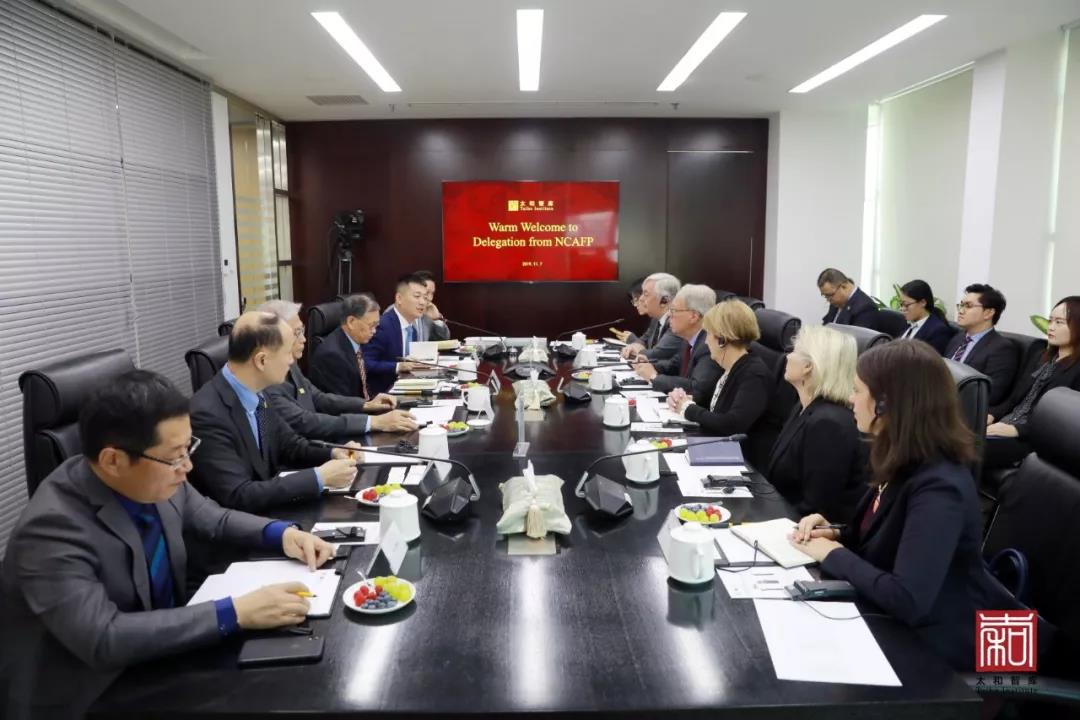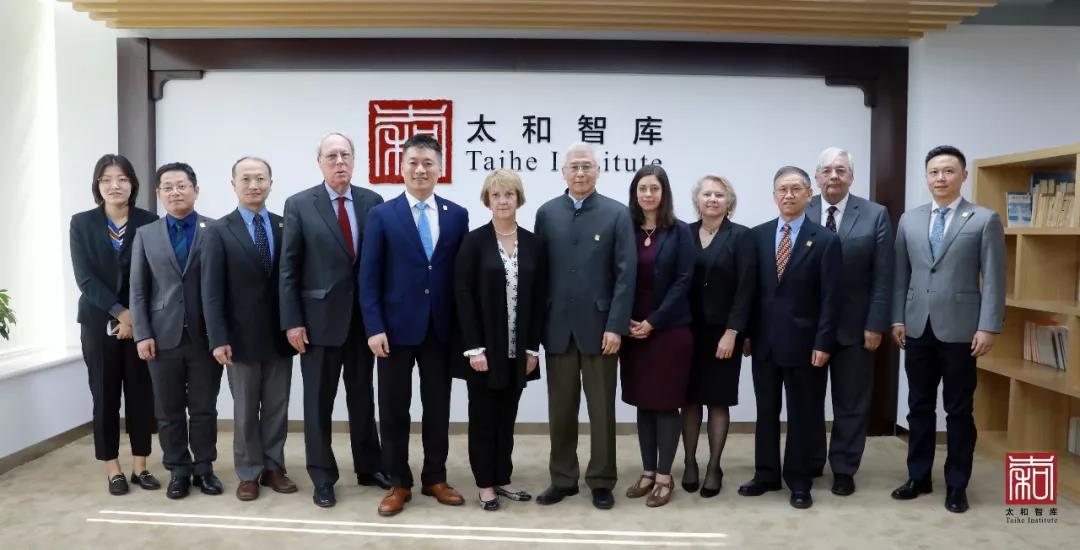On November 7th, 2019, a delegation from the National Committee on American Foreign Policy (NCAFP) visited Taihe Institute and had in-depth exchanges with some of the Taihe researchers on the topics of Sino-U.S. Relations, Taiwan Cross-Strait and North Korea nuclear issues, and other regional front-burner matters, and both parties expressed their views candidly and fully.
At present, Sino-U.S. Relations are in a transitional period before the formation of a new pattern, and while competitive aspects are prominent, interdependence still exists. The evolution of Sino-U.S. Relations has had a profound impact not only on the two countries but also on the economies and security of the Asia-Pacific Region and beyond. It is necessary for Sino-U.S. Relations to strengthen their tenacity and resilience.
Over the past 40 years since the establishment of diplomatic relations between China and the United States, there have always been differences in political systems as well as ideologies between the two countries, and with the continuous growth of China, the contradictions between the two countries have gradually emerged in relevant fields. In this respect, the delegates from NCAFP said that the U.S. does not want to change China's political system, nor overthrow the Chinese regime, but China and the United States must make adjustments and changes to adapt to the new situations and environment in the context of globalization. In its analysis of China's position in the world, the United States believes that China's perception and positioning of itself are not accurate, and that China is no longer a “developing country”.
United States experts indicated that when the United States refers to “Taiwan”, more emphasis is placed on such emotional factors as security commitments, responsibilities and obligations to Taiwan rather than geo-strategic values. Geographically, the geo-strategic value of Taiwan is more important to Japan. In fact, how to avoid Taiwan from becoming a "geopolitical tool" of China is an important consideration for the United States. However, there is no doubt that, as a result of the influence of Alfred Thayer Mahan’s “Sea Power Theory”, the U.S. Navy has always attached great importance to the geo-strategic position of Taiwan. Judging from the recent signals released by the United States Department of Defense, the strategic importance of Taiwan to the United States military is becoming increasingly important as well.
As for the Korean Peninsula, the United States has always been committed to denuclearization. United States experts believed that China and the United States should strengthen cooperation to promote the process of denuclearization on the Korean Peninsula, but in addition, there are many other issues to be dealt with, such as biological and chemical weapons, chemical weapons and cyber warfare. In the long run, China and the United States must find a mutually agreed solution to the Korean Peninsula issue and achieve a strategic balance.
Taihe experts believed that, from a cognitive perspective, it is too limited to simply position and deal with Sino-U.S. Relations using concepts such as “Strategic Competition”, “New Cold War”, “Geopolitics” and “Decoupling”, and it is very easy for both sides to evoke emotional reactions. In particular, in the context of the lack of coherence in the U.S. government's rhetoric and policy towards China, both sides need to be more rational and make greater efforts to formulate and adjust bilateral policies.
Sino-U.S. Relations are now at a delicate and sensitive historical juncture, and that is why dialogue between both sides have become increasingly valuable. In the future, Taihe Institute will continue to give full play to the advantages of non-governmental institutions, build more platforms and channels, further enhance exchanges and mutual learning between China and the United States in different fields, and contribute wisdom and strength to the stability and development of Sino-U.S. Relations.
List of members of the U.S. delegation
Ms. Susan M. Elliott, President and CEO of NCAFP, was the U.S. Ambassador to Tajikistan from 2012 to 2015. Prior to her Ambassadorial appointment, she served as the Deputy Assistant Secretary of State, Bureau of South and Central Asian Affairs, U.S. Department of State;
Mr. Raymond Burghardt was Consul General in Shanghai from 1997 to 1999, and served as Chairman of the Board of Trustees of the American Institute in Taiwan (AIT) from 2006 to 2016;
Ms. Susan Thornton served as the Deputy Assistant Secretary of State, Bureau of East Asian Affairs, U.S. Department of State;
Mr. Mark Tokola served as Minister-Counselor for Political and Economic Affairs, U.S. Embassy, London;
Ms. Rorry Daniels is the Deputy Project Director of the Forum on Asia-Pacific Security (FAPS) of NCAFP.
—————————————————————
ON TIMES WE FOCUS.
Should you have any questions, please contact us at public@taiheglobal.org

